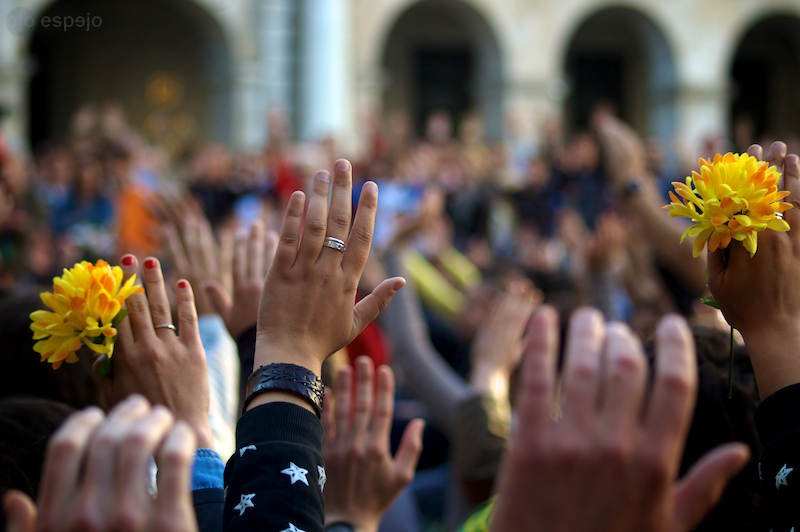Young people and political engagement

- Part of Bright Green’s new political engagement series
There is one issue that always stands out when people discuss what I do as Deputy Leader. It’s a crucial role that’s too often ignored in mainstream politics – above the party meetings, media appearances and rallies. That’s representing young people in politics. Given that just a century ago women under the age of 30 didn’t even have the vote – it felt like a real sign of progress that I was elected deputy leader of the Green Party of England and Wales at the age of 29.
My inspiration to run for the post was to prove what young people can do in politics. Having been a European candidate who received training and support from a variety of organisations because I was a “young candidate” – including through the Young Greens’ pioneering ‘30 under 30’ scheme – I was used to the idea that “young people” are underrepresented in politics and “young people tend not to vote”. But I wanted to do something to change that.
We hear the term “apathetic generation” so often that it too easily becomes a self fulfilling prophecy – with many young people I talk to turning off to politics because it’s not about them but is instead a “buzzword for boring”. But we need to stop talking about an apathetic generation and start talking about uninspiring politicians. We can’t simply blame a generation for not voting if no one has given them a good enough reason to vote.
But I also don’t think we can say that our generation is apathetic because of this fact: political participation is about far more than just voting.
I see young people volunteering in their communities at previously unseen levels, I saw 50,000 young people take to the streets of London to use their democratic right to protest over the government policy to increase tuition fees, I see young people using social media to sign petitions and communicate their opinions like they could never do before.
And when I talk to young people, I see a generation that is losing faith in politics due to the trail of broken promises left behind by previous governments, and policies that have seen young people experience the worst of the government’s cuts, impacts on their education and at the mercy of a housing crisis that they didn’t create. On top of that – the way young people are treated in British politics needs to change – moving away from the usual stereotypes.
But when they do talk about it, many of our political parties paint youth engagement as a one way street. They ask “what could young people do for us?”, but really the question they should be asking is “what can we do for young people?”.
When any group of people have an issue they care deeply about, they will try to achieve change. Basic tribal party politics isn’t enough to win arguments and earn commitment, and I’m glad it’s not. In the Green Party we’re offering better opportunities for young people, and people across every generation, to get involved in campaigns they care about – but there definitely is still work to be done by everyone in the political bubble.
We know that politics can inspire, we have recently witnessed the Scottish Referendum inspiring nearly 85% of people turn up to cast their votes – the highest proportion of people to come out and vote since the introduction of universal suffrage. Scotland proved once and for all that votes at 16 encourages voter registration of young people, while also pushing the spotlight onto their generation and encouraging people to talk about the future.
Votes at 16 is just one of a few obvious changes we could make to our democracy to make it more accessible and more relevant to young people. We also need to think hard about messaging – parties should be clear on their policies, they should avoid jargon and they should try creating youth manifestos as we did in the National Assembly for Wales election this year.
Youth representation also has to increase – when the average age in the House of Commons is 10 years older than the average age of the UK population (50 to 40), it’s clear that younger people are underrepresented. Without representation, young voices don’t feed through into policy. The UN Convention on the Rights of the Child Article 12 guarantees the rights of young voices to be heard and represented on all decisions that may affect them. We achieve this by getting young people elected and ensuring their voices are heard at every level of governance.
We also need schools to support our young people in gaining a political and civic education, giving them the knowledge they feel is required to cast an informed vote. But more than that – teaching them how to find the information they want – which I know as well as anyone isn’t always the easiest to find. We need a more deliberative, active democracy – and that can start in schools.
There are so many ways the UK could be better for young people and politics, and we need action on these now before we have an apathetic population led by a political elite.
If you would be interested in contributing to this article series on political engagement please email allsopbradley@gmail.com with an article pitch




Leave a Reply